The Volvo Circle Pavilion, located in South Korea and designed by Studio Heech, embodies a vision for sustainability. Completed in 2023, this pavilion is not just a structure of beauty but also a testament to the responsible use of materials and environmental consciousness.
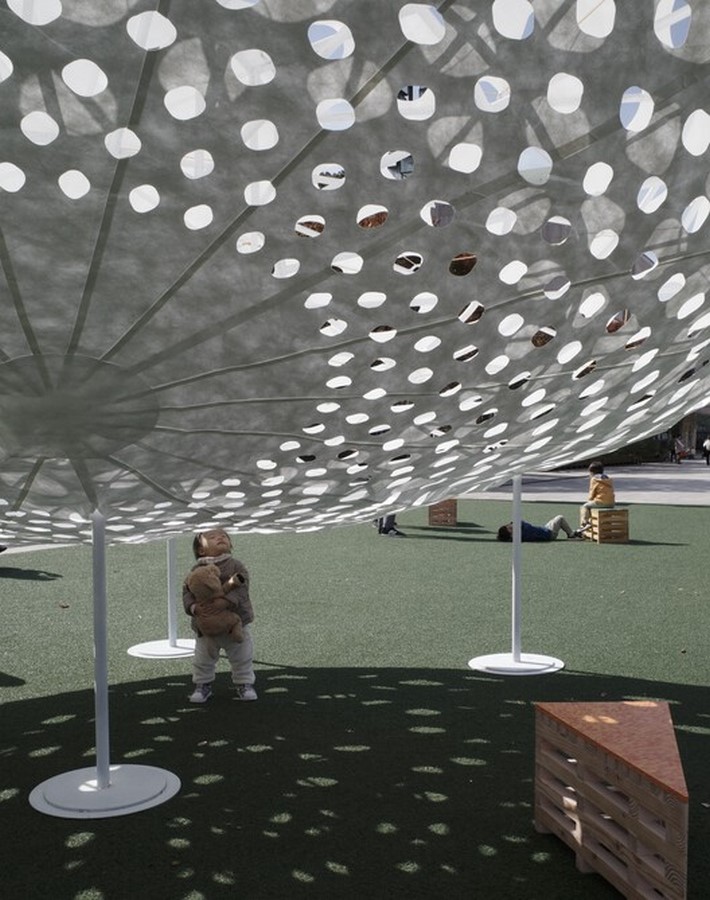
Sustainable Materials and Practices
The pavilion is constructed entirely from lightweight and minimal materials, with a focus on reuse and recycling. Tyvek, a paper-thin and light material, covers the pavilion’s structure. After use, the Tyvek is dismantled and repurposed as recycled plastic boards for public furniture. Additionally, puzzle benches made from reclaimed structural wood are fully recycled and donated. The steel structure supporting the pavilion is disassembled and reused, with most elements prefabricated off-site to minimize environmental impact and carbon emissions during construction.
Collaboration for Sustainability
The creation of the Volvo Circle Pavilion involved collaboration with craftsmen, engineers, and makers from various fields, all united by a commitment to sustainability. Front Inc. contributed expertise in creating a minimal, lightweight structure, while DSLSM focused on producing eco-friendly recycled plastic boards. This multidisciplinary approach ensured that every aspect of the pavilion’s design and construction aligned with sustainable principles.
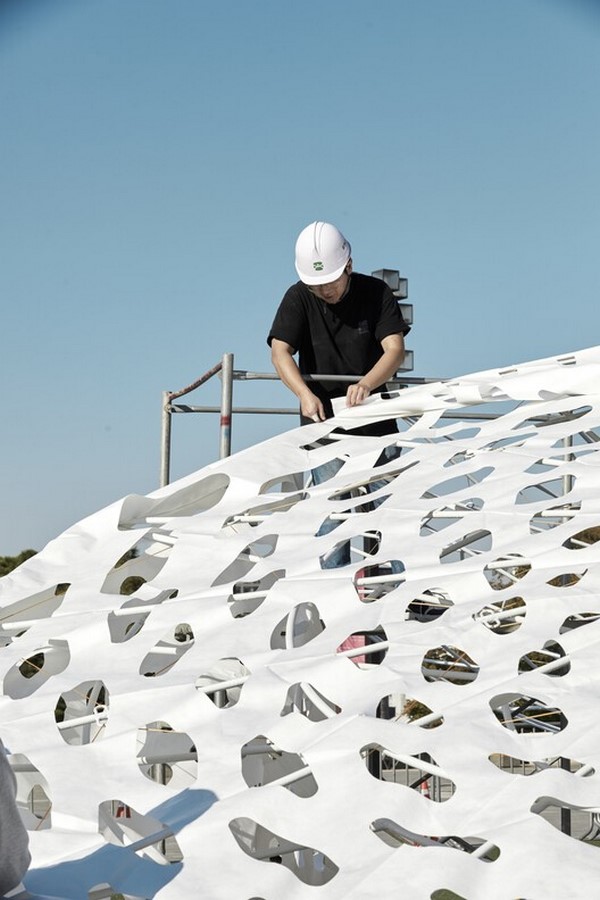
Tyvek: A Versatile Material
Tyvek, chosen for its waterproof properties and similarity to paper, serves as the pavilion’s covering material. Its unique characteristics allow for the creation of intricate patterns, resulting in captivating three-dimensional shadows. These shadows evoke the play of light (Komorebi) filtering through forest leaves, creating an ever-changing spatial experience for visitors.
Material Circulation and Meaningful Use
After serving its purpose, the used Tyvek is recycled into plastic boards, continuing its lifecycle in new forms. Steel frames are recycled at Hyundai Steel Works, contributing to the circular economy. Puzzle benches, crafted from reclaimed wood, are donated to elementary schools, daycare centers, and children’s libraries in the Seoul area, promoting community engagement and sustainability education.
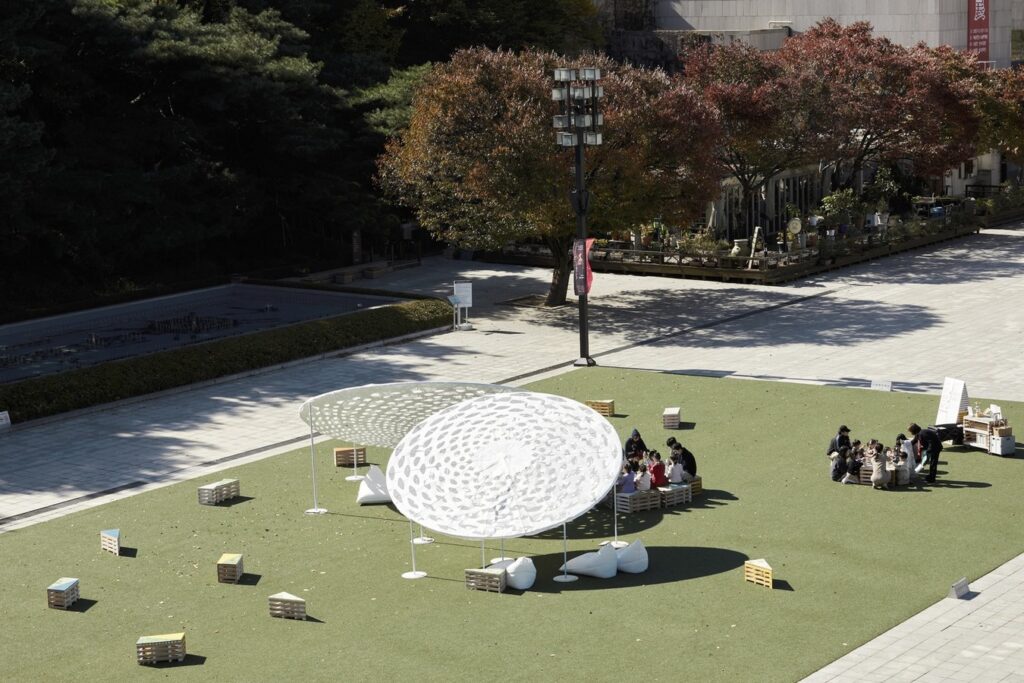
Conclusion
The Volvo Circle Pavilion stands as a beacon of sustainable architecture, showcasing the transformative power of eco-friendly materials and practices. By prioritizing reuse, recycling, and collaboration, Studio Heech has created a space that not only delights visitors but also inspires a deeper appreciation for environmental stewardship. As a symbol of innovation and responsibility, the pavilion sets a new standard for sustainable design in South Korea and beyond.


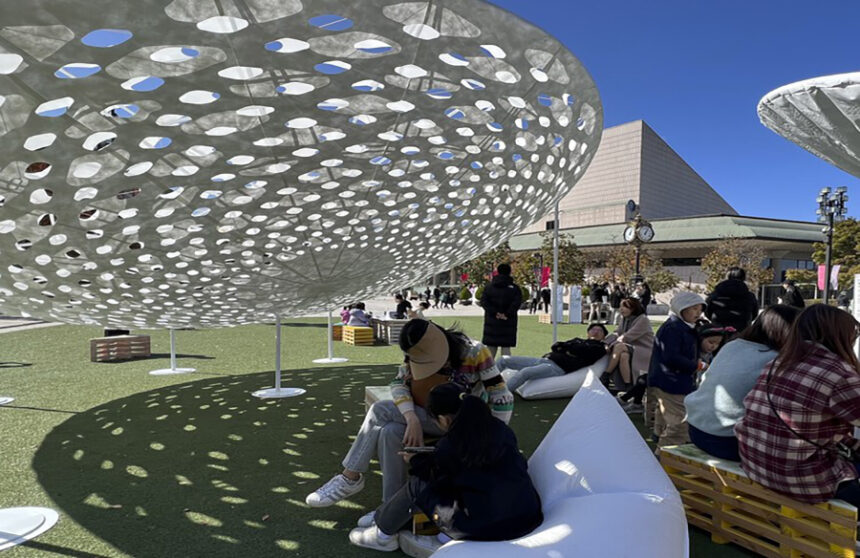
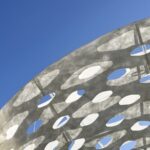
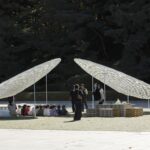
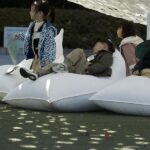
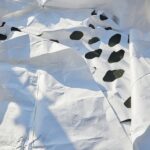
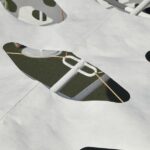
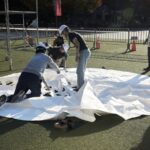
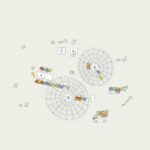
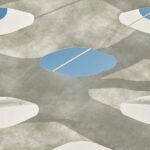
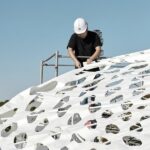
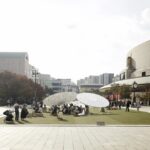
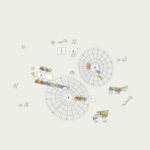
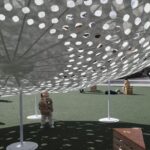
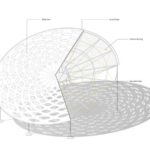
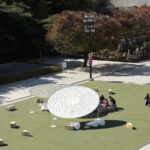
Leave a Reply